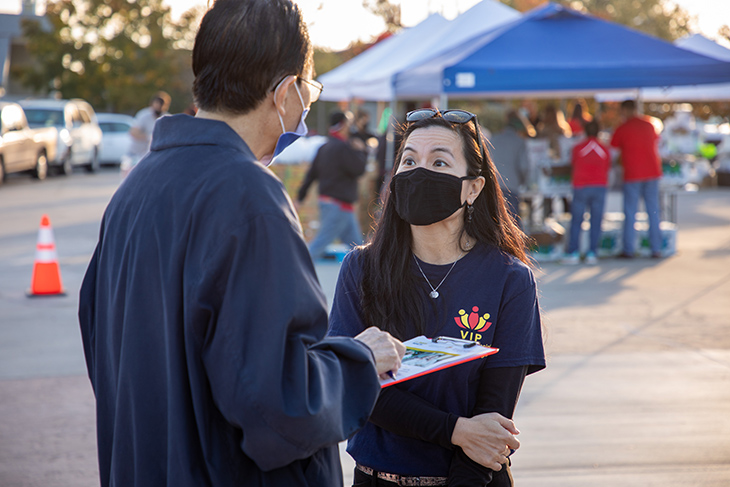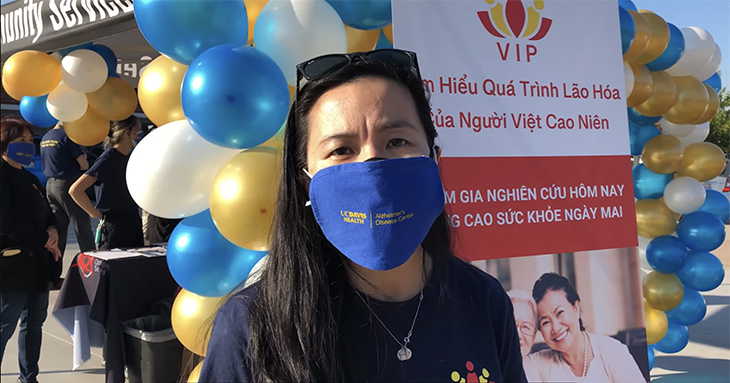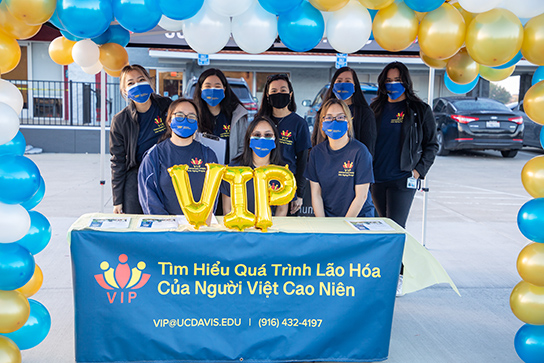Personal experiences, professional perspectives shed insight on caregiving complexities

“We’re going to be caregivers or need a caregiver.”
For Oanh Meyer, a researcher with the Family Caregiving Institute at the Betty Irene Moore School of Nursing and the Alzheimer’s Disease Research Center at UC Davis, this statement is common knowledge among those who study caregiving.
Every day in the United States, 10,000 people turn 65. The number of older adults will more than double over the next several decades and represent greater than 20% of the population by 2050. The U.S. Census Bureau also reported that by 2030, older people are projected to outnumber children for the first time in the nation’s history. Which also means that the number of households that provide care to an older adult is expected to grow to one-in-two households.
These facts, Meyer says, drive her passion to study dementia caregiving as well as research cognitive and mental health disparities in minority populations. Her own personal experiences also guide her work.
Meyer’s 85-year-old mother, Anh Le, suffers from dementia and possibly Alzheimer’s disease. Le arrived in the U.S. in 1975 as a Vietnam War refugee. Now, Meyer leads a number of dementia-related studies, with focus on the Vietnamese American community, as an associate professor in the Alzheimer’s Disease Research Center. When she learned about the launch of the Family Caregiving Institute several years ago, Meyer said she was eager to be part of the research team.


Oanh Meyer discusses her study exploring aging and cognition in older Vietnamese Americans
“I honestly can’t remember if someone asked me or if asked someone else,” she said with a laugh. “I just knew I wanted to be involved. Given my interest in caregiving, it’s exciting to be part of this group. So much work is needed for the caregiving community and also in caregiving research.”

Because of her own her experiences with her mother, Meyer knows far too well the many complexities of caregiving and the burdens placed on caregivers.
“When you are taking care of someone with a disability or illness, it’s 24-hour care. But people don’t have 24 hours a day to give,” she said.
Further complicating caregiving is a lack of understanding of Alzheimer’s disease and dementia, stigma or even specific cultural issues. For example, she said for many Vietnamese American families, there’s an expectation of caregiving.
“In studying Vietnamese American caregivers and interventions to support them, we learned that the focal point needs to be on how ‘you can better take care of your family members’ rather than focus on the caregivers themselves,” she said.
Meyer began her work with the institute through a pilot study of caregivers of those with mild cognitive impairment and dementia. She said she quickly learned the interprofessional team of researchers provides much-needed perspectives and knowledge for her future research.
“This group gives me great perspectives. There are so many backgrounds. I get to work with nurses, psychiatrists and neurologists,” she explained. “These perspectives are so important to understanding the complexity of caregiving. People are complicated so therefore caregiving is complicated.”
Meyer looks forward to continuing research with the Family Caregiving Institute while also conducting other related research. Last fall, she launched a first-of-its-kind study, the Vietnamese Insights into Aging Program (VIP), where she follows older Vietnamese Americans to see what role adversity and trauma may play in Alzheimer’s disease and dementia risk, specifically among Vietnamese American refugees. She hopes to enroll about 570 Vietnamese Americans 65 and older for this $7.2 million study funded by the National Institute on Aging. She also continues her work with caregivers to better understand experiences of family caregiving through the Care Partner Study.

